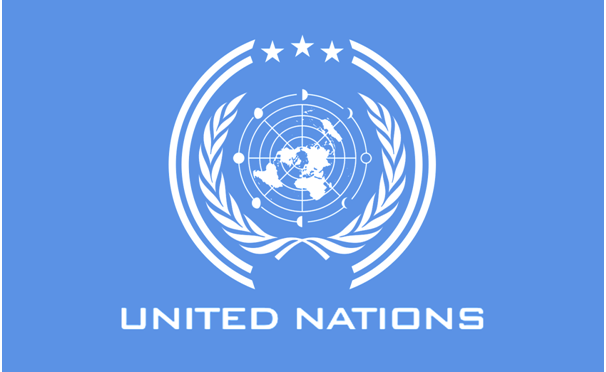ANALYSING THE RELEVANCE OF THE UNITED NATIONS WITHIN THE PRESENT POLITICAL SOCIO-CULTURAL FRAMEWORK
Posted on : December 7, 2023Author : Debanjana Chakraborty

The First World War (1914-1918), also called the Great War, had brought about numerous diplomatic changes within the political framework of the twentieth century world. The sheer humanitarian loss, large-scale economic devastation and long-term ideological fluctuations made different nations agree upon the establishment of an organisation that would harness collective security for the promotion of global peace. Thus, the League of Nations was an attempt at maintain this delicate global balance of power and peace. However, the League of Nations couldn’t prevent the death of 60 million people during the Second World War (1939-1945). That is why, when the United Nations was established by the Allied Powers in 1945, it had been created with a single-minded goal of ensuring stable diplomatic relations between different nation-states. The UN had carefully mediated the fluctuating tensions between the two superpowers, US and USSR during the bi-polar times of the Cold War although it couldn’t stop a series of proxy wars that emerged as result of this ideological divide. However, since the disintegration of the Soviet Union in 1991, there has been a shift in the role of the UN with cognizance of the idea of mediation and conciliation. Time and again, the relevance of the UN, as an international organisation bearing the brunt of diplomatic governance, has been scrutinised and analysed. That is why, it is often a fascinating discussion among scholars on how the UN shall retain its pertinence in the larger political, socio-cultural and economic framework of the present world.
Exploring the Political Complexities
The recent Israel-Hamas War that broke out on the 7th of October 2023 has led to the massacre of thousands of Israeli and Palestinian civilians till date. Reports indicate that as of 17th of November, around fifteen thousand Palestinians have been massacred by Israeli raids and bombings. The UN’s inadequacy at controlling the situation displays a fundamental discrepancy in the proper mediation of collective security.
The Israel-Palestine conflict, remains among others, an instance of the incapacity of the UN to ensure political stability. After the declaration of the state of Israel in 1948 (after considerable opposition and vicissitudes) and the partitioning of Palestine, there were a series of wars, skirmishes and attacks that had inflicted significant damages on both sides. However, the UN has not been able to mediate or conciliate the situation even after seven decades. This has eventually resulted in many criticisms from different national and international forums. One of the primary reasons why the UN fails to mediate the situation is primarily because of the active intervention of the US. Through the course of this decade long conflict, the US has vetoed any formal response thereby claiming that it prefers its own diplomatic tactics in mediating the conflict. During the conflict between Israel and Palestine, in May 2021, Foreign Minister Wang Yi had commented:-
‘The Security Council has not been able to speak in one voice till today because of the obstruction by one single country. We call upon the United States to shoulder its responsibilities and take a just position’
Moreover, John. J. Mearsheimer notes that ‘since 1982, the US has vetoed 32 Security Council Resolutions critical of Israel, more than the total number of vetoes cast by all the other Security Members’. The attack of Hamas and the massive humanitarian crisis following the attack has again brought about criticisms about the relevance of the UN. On 7th October, Antonio Guterres had condemned the attack while stating that the ‘Palestinian people have been subjected to 56 years of suffocating occupation’. The UN had ordered ceasefires, helped rehabilitate the population of Gaza and had even proposed resolutions for peace, only to be vetoed by the US. Thus, it has been argued by many experts of international relations and by many political scientists that there should be fundamental modifications in the structural set-up of the UN and regulations in the Veto Power. Either it should be completely obliterated or there should be provision for better representation. Only through a proper structuring of the crucial bodies of the UN can there be an impartial and just decision-making process for the conflict.
Economic Arenas
The UN, apart from assuming a political function within the international order, also assumes a function geared towards the economic betterment of the Nations stricken with poverty and unemployment. The United Nations Development Programme (UNDP) was established in 1990 to eradicate poverty and is spread across 170 countries. This was inspired by the pioneering works of Mahbub-ul-Haq and Amartya Sen who prepared an outstanding definitional narrative of the idea of Development. The UNDP includes six policy centres: The Seoul Policy Centre on partnerships, the Nairobi Global Policy Centre on Resilient Ecosystems and Desertification, the Singapore based Global Centre on Technology, Innovation and Sustainable Development, the Istanbul International Centre for Private Sector in Development, the Oslo Governance Centre, the Singapore-based Global Centre for Public Sector Excellence.
The UNDP has accomplished many prominent projects but have also been embroiled in numerous controversies. One of the most prominent controversies surround the development of Global Environmental Projects in Russia in 2019. According to an article of the Financial Times, UNDP has faced grave accusations of corruption and mismanagement of millions of dollars which were invested in the project. Dmitry Ershov, a Russian National has raised concerns regarding the matter quite early on. He commented:-
‘Donors, please do not let the UNDP get away with stealing your money and covering it up for years and years’
Moreover, the UN regularly suffers from mismanagement and proper arrangements of funds causing it even difficult for it to function. This has led many scholars to question the economic relevance of the UN. The World Bank, another crucial UN body, is also accused of misappropriation of funds.
Assessing the Socio-Cultural Facets
The United Nations not only delves into the political and economic aspects but also strives to preserve and protect the socio-cultural heritage of the world. UNESCO, established in 1945, is aimed towards the protection of and promotion of education, arts, science and culture.
UNESCO strives to protect the cultural and natural heritage of the world, it aims to also protect the underwater heritage and it conserves different monuments of international and national heritage by declaring it as a ‘Heritage Site’. India, for instance, has numerous world Heritage Sites and there are more than 1000 heritage sites in 167 nations.
In terms of the cultural relevance of the UN, it can thus be argued that the UN has significant cultural relevance as an international institution as continues with better efforts at the preservation and protection of the socio-cultural treasure of the world.
Conclusion
The UN has emerged out of the apocalyptic rubble of the Second World War and was aimed towards the protection and maintenance of peace. It is true that since the advent of the UN there hasn’t been a war that matched the intensity of World War 2. However, the UN hasn’t been able to prevent many other wars which continue to have ramifications, partly due to the problematic nature of the Security Council or circumstantial complexities. The Economic relevance of the UN has been met with serious criticisms owing to mismanagement of funds and cases of corruption. Lastly, on the socio-cultural context, the UN has been performing comparatively better.Nevertheless, UN is relevant because of its ever-widening representational forums and because of its cultural significance.
References
- What has the UN done and said on the Israel-Palestine Conflict?
Accessed: 26/11/2023
- Israel-Palestine Conflict has ‘reached an unprecedented level of dehumanisation’
Accessed: 27/11/2023
Link: https://news.un.org/en/story/2023/10/1142952
- Greed and Graft at the UN Climate Program
Accessed: 27/11/2023
Debanjana Chakraborty
Intern, Asia in Global Affairs
The originality of the content and the opinions expressed within the content are solely the author’s and do not reflect the opinions and beliefs of the website.





Leave a Reply